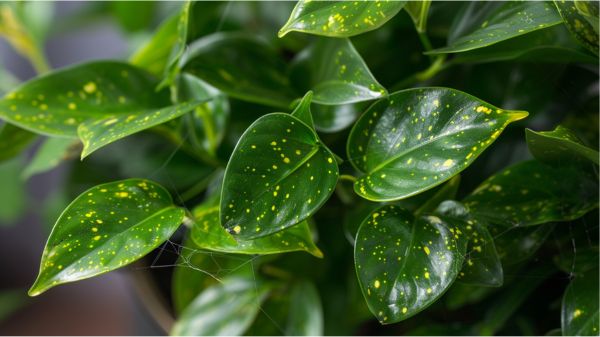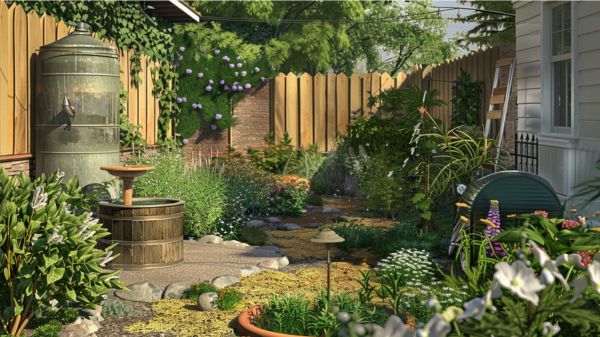7 Key Tips to Identify & Treat Houseplant Pests
Imagine your houseplants are like a secret garden, each leaf a delicate treasure you nurture. But what if an unseen threat lurks in the shadows, slowly weakening your green oasis? Understanding the subtle signs and knowing how to combat these pests is essential for every plant parent. Let’s uncover the 7 key tips to identify and treat houseplant pests, ensuring your indoor garden remains a thriving sanctuary for nature’s beauty.
Key Takeaways
- Regularly inspect plants to catch pests early and prevent infestations.
- Use organic methods like neem oil for general pest control.
- Implement sticky traps and quarantine affected plants to contain pests.
- Choose suitable treatments like insecticidal soap for specific pests like mealybugs.
Identifying Common Houseplant Pests
When inspecting your indoor houseplants, you can easily identify common pests like scale insects, mealybugs, whiteflies, thrips, and aphids by observing their distinct characteristics and the damage they cause.
- Scale insects, such as brown soft scale, adhere to stems and leaves, causing yellowing leaves through their sap-sucking activities.
- Mealybugs congregate in clusters, secreting honeydew that attracts ants and sooty mold.
- Whiteflies feed on plant sap, with the immature stages inflicting the most harm, particularly on plants like ivies and poinsettias.
- Thrips, tiny insects found on light-colored plants like hibiscus, not only damage plant tissues but also transmit diseases. Identifying these pests early on is crucial to prevent further infestation and effectively treat the damage they cause.
Prevention of Houseplant Pests Infestation
How can you effectively prevent houseplant pest infestation to maintain the health of your indoor garden? To keep your plants free from pests, it’s crucial to inspect new arrivals regularly, use sticky traps around your plants, and quarantine any affected plants to prevent the spread of infestations.
Maintaining good plant hygiene by wiping leaves can also deter pests from settling in. Additionally, avoiding overwatering is key, as moist soil conditions attract pests like fungus gnats. Below is a table summarizing key prevention methods:
| Prevention Method | Description |
|---|---|
| Inspect new plants | Regularly check new plants for signs of pests |
| Sticky traps | Use traps to capture pests and reduce infestation risk |
| Quarantine | Isolate affected plants to prevent spread |
| Plant hygiene | Wipe leaves to deter pests settling in |
| Avoid overwatering | Prevent moist soil conditions that attract pests |
Organic Vs. Chemical Pest Control
Utilizing either organic or chemical methods for pest control in houseplants is a critical decision that can significantly impact the health and vitality of your indoor garden.
When considering organic vs. chemical pest control, it’s essential to understand the differences between the two approaches:
- Organic pest control
- Neem oil is a natural and effective alternative.
- Suitable for general pest infestations.
- Chemical pesticides
- Necessary for severe pest infestations.
- Provide quick and potent solutions for persistent problems.
Treatment for Common Houseplant Pests
To effectively combat common pests that afflict houseplants, understanding the appropriate treatment methods is crucial for maintaining the health and well-being of your indoor garden.
When dealing with pests like mealybugs, spider mites, scale insects, whiteflies, and springtails, targeted treatments can help eradicate these nuisances.
Below is a table outlining treatment methods for these common houseplant pests:
| Pest | Treatment |
|---|---|
| Mealybugs | Use insecticidal soap or neem oil |
| Spider Mites | Wipe leaves with water and neem oil extract |
| Scale Insects | Wipe leaves, use neem or horticultural oils |
| Whiteflies | Reduce adult population, use traps or soap |
| Springtails | Remove with wet-dry shop vac, keep soil dry |
Effective Pest Eradication Methods
When combating pests infesting your houseplants, choosing effective eradication methods is paramount for safeguarding the health of your indoor garden.
Here are some strategies to help you effectively eliminate pest infestations:
- Neem oil: Utilize neem oil, a natural remedy, to control common houseplant pests like aphids, mealybugs, and scale insects.
- Insecticidal soap: Treat soft-bodied pests such as aphids, spider mites, and whiteflies with insecticidal soap on your indoor plants.
- Beneficial insects: Introduce beneficial insects such as ladybugs and green lacewings to prey on and manage pests like mealybugs and thrips effectively.
- Regular monitoring: Regularly inspect your plants for early signs of pest infestation, like yellowing leaves or sticky residue, to ensure prompt and efficient pest control.
Frequently Asked Questions
How Do You Identify Pests on Plants?
To identify pests on plants, check for common signs like yellowing leaves, sticky residue, webbing presence, distorted leaves, or small flying insects. Inspect under leaves, in soil, and around stems for pests’ hiding spots, eggs, or droppings.
How Do You Inspect a Plant for Pests?
To inspect a plant for pests, start with a visual inspection of both upper and lower leaf surfaces. Look for common signs like discoloration or sticky residue. Use a magnifying glass for early detection of tiny pests.
How Do You Identify and Treat Scale Infestations in a Houseplant?
When dealing with scale infestations on houseplants, start by inspecting leaves and stems for oval-shaped pests. Use neem oil or insecticidal soap to control them. Regularly monitor your plants for early detection and treatment.
How Do You Treat Pests on Plants?
To treat pests on plants effectively, utilize natural remedies like neem oil or insecticidal soap. Control pests with DIY solutions such as wiping them off. Implement preventative measures like good plant hygiene. For severe infestations, consider chemical treatments under professional guidance.
Related Post: Top Practices for Indoor Gardening Pest Control.
Conclusion
Now that you’ve learned how to identify and treat houseplant pests, remember to regularly inspect your plants for any signs of infestation.
By practicing good hygiene and implementing preventive measures, you can keep your indoor garden healthy and thriving. Remember, an ounce of prevention is worth a pound of cure when it comes to dealing with pesky pests.
Stay vigilant and your plants will thank you for it!






